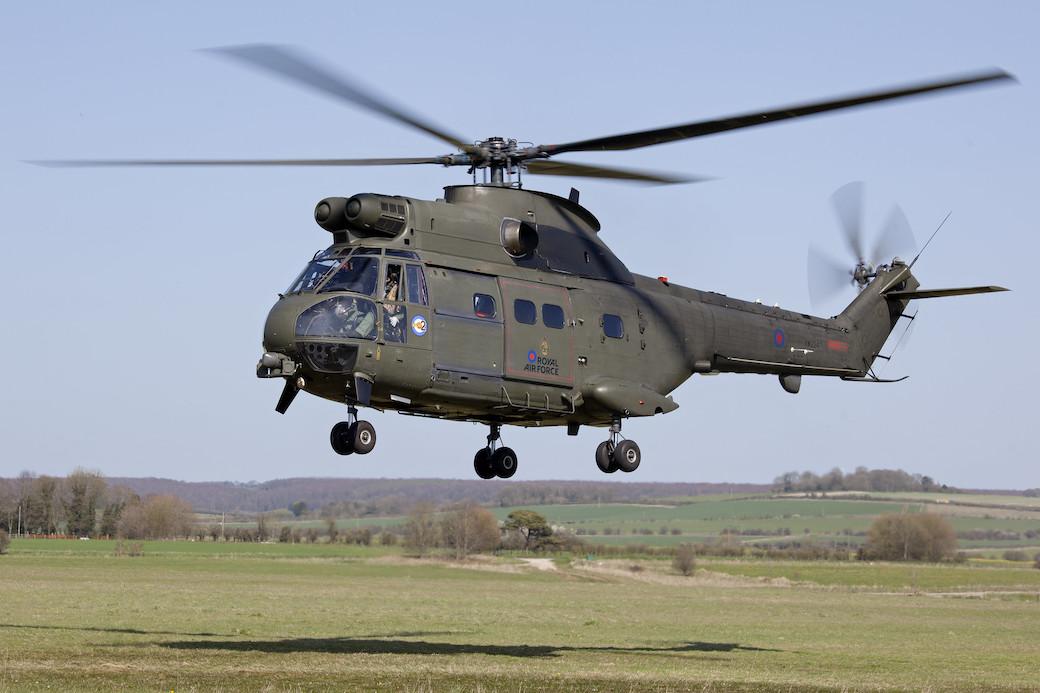
LONDON—The UK Defense Ministry plans to contract with Airbus Helicopters to support its Puma rotorcraft until 2028, as the ministry continues to delay launching a tender for a fleet successor.
Documents published by the department on Sept. 6 say it plans to sole-source contract Airbus Helicopters UK to support the fleet for an additional three years from 2025 to the end of March 2028.
Although the documents say the contract’s value could be as much as £320 million ($400 million), Airbus officials tell Aerospace DAILY the actual cost will be a “fraction of that,” in part because of an expected additional fleet reduction.
The need to extend the Puma fleet appears likely as a result of the ministry decision to proceed with the New Medium Helicopter (NMH) program to find a replacement for the Puma and several other UK helicopter fleets.
Although the program was formally launched in May 2022 and three contenders—Airbus, Leonardo Helicopters and Lockheed Martin—were downselected earlier this year, the companies are still awaiting a formal invitation to tender.
Industry is now expecting that milestone in October, 13 months later than planned. That would push back the in-service date of the selected aircraft beyond 2025, the original date.
Original documents called for the NMH program to acquire around 44 helicopters to replace the Airbus Puma and Dauphin and Bell 212 and 412 fleets. But industry officials are now expecting the actual number of aircraft to be 25-35.
Airbus is proposing a militarized version of its H175 super-medium helicopter to be produced in North Wales, while Leonardo has been promoting its AW149 platform, which would be assembled at its Yeovil, England, facility.
Lockheed Martin is planning to offer its S-70M Black Hawk built in Poland but modified and supported in the UK. Lockheed is expected to provide more details on its proposals at the DSEI defense exposition here starting Sept. 12.
The program is seen as the first major UK defense offering to follow the guidelines set by the government’s Defense and Security Industrial Strategy, which calls on bidders to provide a focus on social value as part of their bids.
It is understood that part of the delay to the launching of the tender has been understanding how best to define and score that social value.
